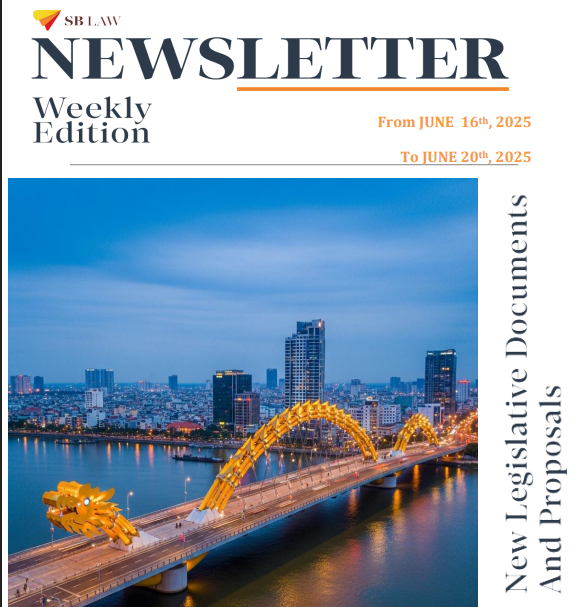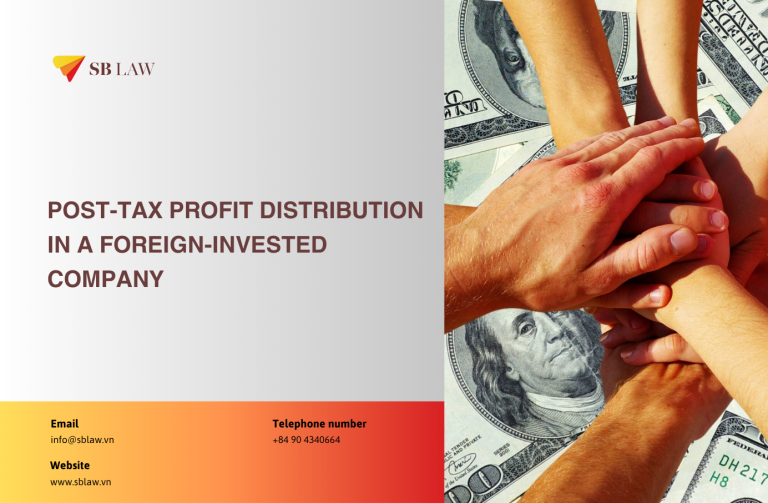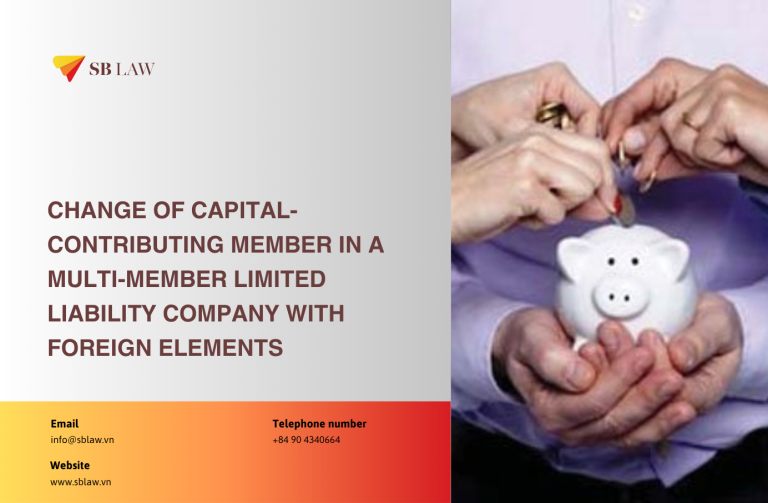
1. Adjustment of monthly salary deducting rate to pay Social Insurance in 2022
On December 31, 2021, the Ministry of Labor, War Invalids and Social Affairs issued Circular No. 36/2021/TT-BLDTBXH stipulating salary adjustment and monthly income deducting rate for paying social insurance. Accordingly, the monthly salary subtracting rate for paying social insurance for employees paying compulsory social insurance prescribed in Clause 1, Article 1 of Circular No. 36/2021/TT-BLDTBXH is adjusted according to the following formula:
|
Deducted monthly salary paying social insurance, based after adjustment of each year |
= |
Total deducted monthly salary paying social insurance |
x |
Adjustment of salary deducting rate for paying social insurance in the corresponding year |
In which, adjustment of salary deducting rate for paying social insurance in the corresponding year is made according to the table below:
| Year | Before 1995 | 1995 | 1996 | 1997 | 1998 | 1999 | 2000 | 2001 | 2002 | 2003 | 2004 | 2005 | 2006 | 2007 | 2008 |
| Adjustment rate | 5,10 | 4,33 | 4,09 | 3,96 | 3,68 | 3,53 | 3,58 | 3,59 | 3,46 | 3,35 | 3,11 | 2,87 | 2,67 | 2,47 | 2,01 |
| Year | 2009 | 2010 | 2011 | 2012 | 2013 | 2014 | 2015 | 2016 | 2017 | 2018 | 2019 | 2020 | 2021 | 2022 | |
| Adjustment rate | 1,88 | 1,72 | 1,45 | 1,33 | 1,25 | 1,20 | 1,19 | 1,16 | 1,12 | 1,08 | 1,05 | 1,02 | 1,00 | 1,00 |
For employees who both pay social insurance, which is subject to the salary prescribed by the State and pay social insurance according to the salary plan decided by the employer, the deducted monthly salary paid for social insurance are based on the time when Employees start participating in social insurance according to the salary plan prescribed by the State from January 01, 2016 onwards. The deducted monthly salary paid for social insurance according to the salary system decided by the employer is adjusted according to the above provisions.
This Circular will take effect from February 20, 2022; the provisions of this Circular will be applied from January 01, 2022.
2. Amendment of regulations on labeling origin of goods
On December 9, 2021, the Government issued Decree 111/2021/ND-CP amending Decree 43/2017/ND-CP on goods labels, including amendments to regulations on the origin of goods.
Specifically, manufacturing, exporting, and importing organizations and individuals shall identify and record the origin of their goods by themselves, ensuring truthfulness, accuracy, and compliance with legal provisions on the origin of exported, imported goods; goods manufactured in Vietnam or international commitments to which Vietnam participates.
(Compared with the current regulations, additional subjects are organizations and individuals exporting goods).
The origin of goods stated on the label is shown by one of the following phrases: “made in”; “manufactured in”; “producing country”; "origin"; "made by"; “product of” shall be accompanied by the name of the country or territory producing the goods or in accordance with the provisions of the law on the origin of the goods.
(Compared to the current regulations, add the phrase “product of”).
In case the origin of goods cannot be determined according to the provisions of Clause 1, Article 15 of Decree No. 43/2017/ND-CP, write the place where the final stage of finishing the goods is performed.
Expressed by one of the phrases or a combination of phrases describing the finishing stage of goods as follows: “assembled at”; “bottled at”; “mix at”; “completed at”; “packed at”; “labeled at” with the name of the country or territory where the final stage of finishing the goods is performed.
Decree 111/2021/ND-CP will take effect from February 15, 2022.
3. Reduced Value Added Tax from 10% to 8%
The Government has just issued Decree 15/2022/ND-CP dated January 28, 2022 providing tax exemption and reduction policies under Resolution 43/2022/QH15, including guidance on reducing VAT from 10% to 8% in 2022 (Article 1 Decree 15/2022/ND-CP)
Accordingly, groups of goods and services applying the 10% VAT rate will be reduced by 2% in 2022, down to 8%. The VAT reduction will not apply to several groups of goods and services, including: telecommunications, information technology, financial activities, banking, securities, insurance, real estate business, metal production, prefabricated metal products and manufacturing, mining (excluding coal mining), coking coal production, refined petroleum, chemical and chemical products production, commodity products and services which are fined with special consumption tax.
Business establishments that calculate value-added tax by the credit method may apply the value-added tax rate of 8% for goods and services. Business establishments (including business households and business individuals) that calculate value-added tax by the method of percentage on turnover are entitled to a reduction of 20% of the percentage rate to calculate value-added tax when implementing issue invoices for goods and services eligible for value-added tax reduction specified above. VAT is reduced directly upon invoice issuance.
In addition to the VAT reduction policy, Decree 15 also allows the calculation of support and funding for the prevention of the Covid-19 epidemic into deductible expenses when determining corporate income tax in 2022. It is expected that the State budget in 2022 will be reduced by 51,400 billion VND, mainly due to a reduction of 49,400 billion VND from the VAT reduction, the rest is a deduction for expenses included in corporate income tax.
Article 1 Decree 15/2022/ND-CP will take effect from February 01, 2022 until December 31, 2022.
4. Increase maximum overtime with seasonal workers
According to Circular 18/2021/TT-BLDTBXH, the maximum working time and overtime of employees doing seasonal jobs and processing jobs according to orders will increase by 12 hours/week and 8 hours/month. Expressly, it is stipulated in Article 6 as follows:
- Total standard working hours and overtime hours must not exceed 12 hours/day
- Total working hours and overtime hours must not exceed 72 hours/week. (Currently, according to Circular 54/2015/TT-BLDTBXH, total hours is 60 hours/week)
- Total overtime hours must not exceed 40 hours/month (Currently 32 hours/month)
- The employer shall decide to choose and apply the regulations on working hours and overtime on a weekly or monthly basis, and write in the plan of working hours and rest times in the year specified in Clause 2, Article 8 Circular 18/2021/TT-BLDTBXH.
- Total overtime working hours must not exceed 300 hours/year.
Circular 18/2021/TT-BLDTBXH will take effect from February 01, 2022, and replace Circular 54/2015/TT-BLDTBXH.
5. 4 cases of labor export without paying service fees
Circular No. 21/2021/TT-BLDTBXH of the Ministry of Labor, Invalids and Social Affairs detailing a number of articles of the Law on Vietnamese workers working abroad under labor contracts.
Accordingly, based on Appendix XI stipulating the ceiling of service fees collected from employees for a number of markets, industries, professions and jobs, there are 4 cases where employees are not required to pay this amount, including:
- Going to Japan as the 3rd technical intern (in case the service business and management organization are not changed).
- Going to Japan to work as a special-skill worker (in case the completion of the No. 2 or No. 3 Technical Trainee program is eligible to receive a specific skilled worker).
- Going to Malaysia to work as a domestic helper.
- Going to West Asian countries to work as a domestic helper.
Meanwhile, if the em go to Japan to work as high-tech workers, ship construction workers according to a specific operating plan; went to Taiwan to work as a nurse and medical assistant at hospitals and nursing centers; If the employee goes to Korea to work as an inshore fishing crew member, the employee must pay a service fee equal to 0.7 months' salary for each 12-month contract, and a maximum of 1 month's salary for each contract of 36 months or more.
If the employee come to Taiwan to work as a caregiver at home, as a domestic helper, as an agricultural worker, or as a crew member of a fishing boat near the shore, this fee is 0.4 months' salary for each 12-month contract and up to 1-month salary for each contract of 36 months or more.
Circular 21/2021/TT-BLDTBXH will take effect from February 01, 2022.
6. 4 treatment methods for unsafe food products after being recalled
Circular 17/2021/TT-BNNPTNT of the Ministry of Agriculture and Rural Development regulating the traceability, recall, and treatment of unsafe food under the management of the Ministry.
Accordingly, Article 13 of this Circular clearly stipulates four methods of handling unsafe food after being recalled, including:
- Fixing product errors and labeling errors: Fixing product errors applies to food that can be handled by technical measures to ensure food safety; Correcting errors in labeling applies to food that is not correctly labeled according to regulations.
- Change of use purpose: Applicable to the case of unsafe food, causing adverse effects on consumers' health, not being used as food but can be used for other purposes after suitable handling.
- Re-export: Applicable to cases where imported food is unsafe and subject to re-export according to law provisions.
- Demolish: Applies to cases where food has a safety limit that is not consistent with self-declared records, technical regulations, and food safety regulations that affect consumers' health can not reuse or re-export.
Circular 17/2021/TT-BNNPTNT will take effect from February 02, 2022.
7. Supplementing several mandatory contents in the labor export contract
Circular 21/2021/TT-BLDTBXH guiding the Law on Vietnamese workers working abroad under contract 2020 has added several mandatory contents in labor export contracts.
Accordingly, based on Article 14 of this Circular, there are additional mandatory contents in the labor export contract, including orientation education before going to work; compensation for damage caused by breach of contract; mechanisms, procedures, and laws applicable to dispute resolution.
In addition, the Circular also stipulates that the ceiling of remuneration under a brokerage contract is according to an agreement between the service enterprise and an intermediary organization or individual. Still, it must not exceed 0.5 months' salary under the agency’s arrangement and employees for every 12 months worked.
Circular 21/2021/TT-BLDTBXH will take effect from February 01, 2022.
8. New regulations on cross-border road transport permits
Decree No. 119/2021/ND-CP stipulating the order and procedures for granting, re-granting, and withdrawing cross-border road transport permits, approved by the Government on December 24, 2021.
Specifically, this Decree clearly and fully stipulates the steps and order that transport business units need to know in order to be granted an international road transport license and an intermodal transport permit, specifically including: ASEAN international road transport license; ASEAN intermodal license; GMS international road transport license; GMS transport license or TAD book; License for international road transport between Vietnam and China for vehicles of classes A, B, C, E, F, G of both Vietnam and China; License for international road transport between Vietnam and Laos; License for intermodal transport between Vietnam and Laos; License for international road transport between Vietnam and Cambodia; License for intermodal transport between Vietnam and Cambodia; License for intermodal transport between Vietnam, Laos, and Cambodia.
Decree 119/2021/ND-CP will take effect from February 15, 2022.




